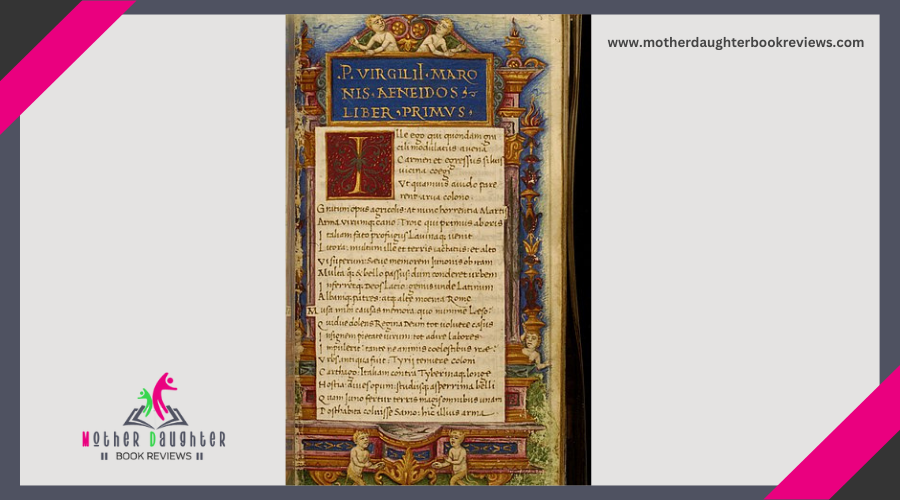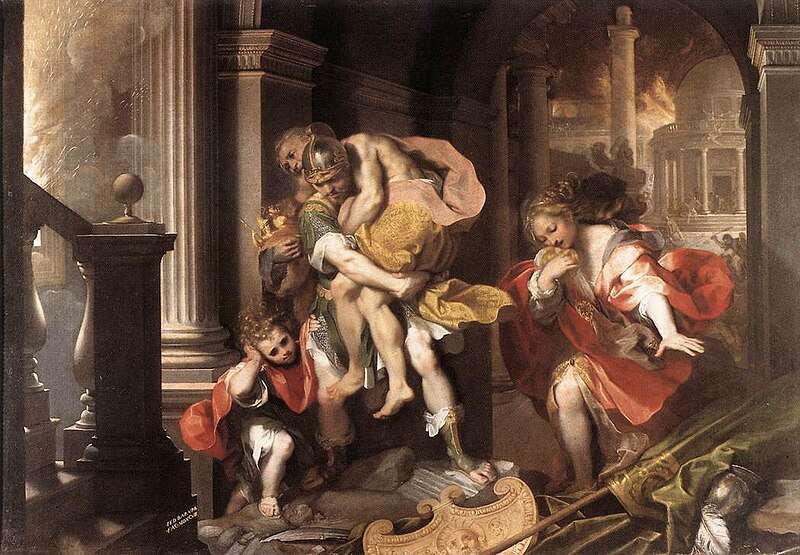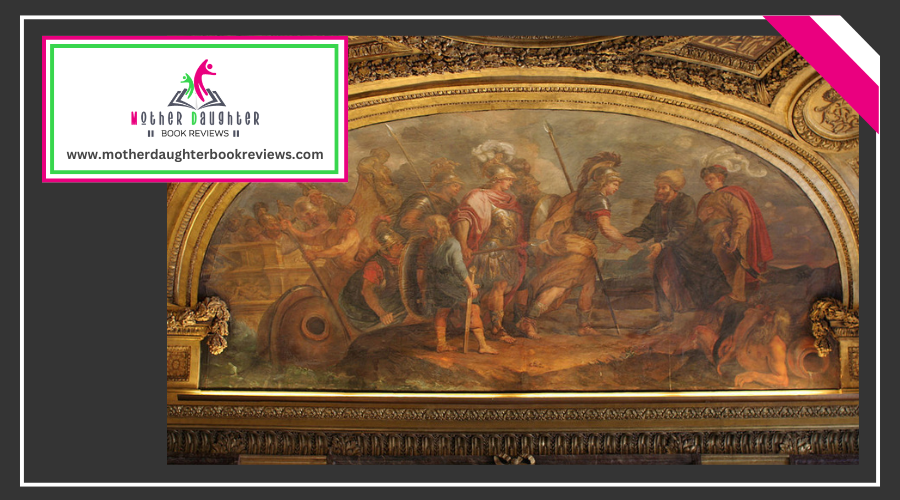Heroic Deeds From the Roman Children's Classic the Aeneid

In the Roman children's classic, the Aeneid, you'll witness Aeneas's heroic escape from the ruins of Troy. He carries his father, Anchises, and holds his son Ascanius's hand, showcasing incredible bravery. His arduous voyage to Italy is fraught with divine obstructions and perilous storms. In a daring quest, Aeneas descends into the Underworld for guidance. The epic culminates in his intense battle with Turnus, embodying strength and justice. Ultimately, Aeneas establishes Lavinium, securing a hopeful future for his people. There's much more to investigate in this epic tale of courage and resilience.
Aeneas's Escape From Troy
Amidst the chaos and destruction of Troy, Aeneas emerges as a guiding light of hope and resilience. As the city burns, you see Aeneas taking charge, determined to save his family and fellow Trojans. He doesn't hesitate. With his elderly father Anchises on his back, his young son Ascanius holding his hand, and his wife Creusa following closely, Aeneas leads them through the dark, treacherous streets.
You observe his unwavering courage as he fights off enemies and navigates the dangers of a collapsing city. Aeneas's leadership shines through when he gathers a group of survivors, urging them to stay united and strong. His sense of duty isn't just limited to his family; he feels responsible for his people, ensuring they have a future despite their current despair.
Even when faced with heart-wrenching loss, such as when Creusa is tragically lost in the chaos, Aeneas doesn't break. He returns to search for her but ultimately accepts his fate and focuses on the greater mission. His actions exemplify the qualities of a true hero: bravery, selflessness, and an unyielding commitment to his people's survival.
The Voyage to Italy
With the fall of Troy behind them, Aeneas and his band of survivors commence on the arduous voyage to Italy, spurred by prophecies and divine interventions. Guided by destiny, they navigate treacherous seas and face numerous obstacles. The expedition is fraught with peril, testing their resolve and faith in the gods' promises.
Divine interventions play a significant role. Juno, queen of the gods, harbors a grudge against the Trojans and constantly tries to thwart their mission. In contrast, Venus, Aeneas's divine mother, lends her support, ensuring their voyage continues despite the challenges.
Aeneas's leadership is vital. He motivates his crew, keeps hope alive, and makes strategic decisions that steer them through storms and hostile lands. They land in Carthage, where Aeneas's brief affair with Queen Dido complicates their mission, but he ultimately recommits to his destiny.
The Underworld Journey
To fulfill his destiny, Aeneas must venture into the Underworld, guided by the Sibyl of Cumae. You follow him as he seeks his father Anchises' wisdom. Initially, you watch as Aeneas sacrifices to the gods, asking for their favor. The Sibyl leads him to a dark cave, and you feel the chill as they descend into the eerie depths.
In the Underworld, you see Aeneas encounter terrifying sights: the souls of the unburied wailing in anguish, monstrous creatures, and rivers of fire. Yet, Aeneas presses on, his heart set on his goal. You witness him offering the golden bough to Charon, the ferryman, who reluctantly allows them to cross the River Styx.
As they advance deeper, you observe Aeneas meeting the spirit of Dido, who turns away from him in sorrow and anger. The path is fraught with emotional trials, but Aeneas remains resolute. Ultimately, you reach the Elysian Fields, where Anchises reveals Rome's future greatness, inspiring Aeneas with a vision of his descendants' glory. The expedition through the Underworld strengthens Aeneas, preparing him for the trials ahead and solidifying his resolve to establish the future Roman Empire.
The Battle With Turnus
The climactic confrontation you've been anticipating ultimately arrives as Aeneas faces Turnus on the battlefield. This showdown is the culmination of their bitter rivalry, and every moment is charged with tension. Aeneas, driven by destiny and the need to secure his people's future, meets Turnus, who is fueled by pride and a desire to protect his own kingdom. The clash of their swords echoes the stakes of their conflict.
As the battle rages, you'll feel the intensity of each strike and counterstrike. Aeneas exhibits not just brute strength but also tactical brilliance. Meanwhile, Turnus's courage and tenacity make him a formidable opponent. Their combat is a dance of fate, with both men aware that only one can emerge victorious.
In the end, Aeneas gains the upper hand, driven by a mixture of divine support and personal resolve. Turnus, realizing his impending defeat, pleads for mercy. The decision Aeneas faces here is crucial, reflecting themes of justice, mercy, and the harsh realities of war.

The Founding of Lavinium
After the intense clash with Turnus, Aeneas turns his focus to establishing a new home for his people. You see, Aeneas isn't just a warrior; he's also a visionary leader. Guided by fate and the gods, he sets out to found Lavinium, the city that would become a cornerstone for future Roman civilization.
As you follow Aeneas, you witness his tireless efforts to build Lavinium. He selects a strategic location, ensuring it has fertile lands and access to the sea, essential for trade and defense. With a clear plan in mind, Aeneas organizes his people, assigning roles and tasks to make the best use of their diverse skills.
Aeneas oversees the construction of homes, temples, and public spaces, fostering a sense of community and purpose. He doesn't shy away from hard work, and his hands are as calloused as any laborer's.
In Lavinium, you see a reflection of Aeneas' resilience and hope. This city isn't just a settlement; it's a symbol of a new beginning, rooted in the trials and triumphs of its founder. Through Aeneas, you understand that true heroism lies not just in battle, but in creating a future.

Conclusion
The Aeneid is more than just a tale of battles and adventures—it's a story of endurance, leadership, and the pursuit of destiny. Aeneas's heroic deeds, from his daring escape from Troy to his final battle with Turnus, highlight his unwavering commitment to his people and their future. His journey, marked by divine interventions, personal sacrifices, and moral dilemmas, illustrates what it truly means to be a hero. Through his founding of Lavinium, Aeneas secures not just a home for his people, but a legacy that would shape the future of Rome.




